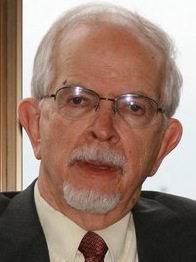Prior to the start of the Iraq War on March 19, 2003, New York Times journalist Chris Hedges (above) occupied a lonely perch among major media journalists. He opposed the war.
Today, Hedges, a Pulitzer Prize winner and now a columnist for the website Truthdig, continues to write with the passion of a man set free from corporate control.
His latest posting is a perceptive analysis of both the role this nation's political and media "liberal hawks" played in launching the Iraq war, and the "rewriting of history" by those "liberal hawks" on the 10th anniversary of the start of that war.
In his Truthdig column, "The Treason of the Intellectuals," Hedges asks, how did the liberal Iraq war boosters react to the tenth anniversary of the war they initially supported?
"Some claimed they had opposed the war when they had not. Others ... argued that they had merely acted in good faith on the information available; if they had known then what they know now, they assured us, they would have acted differently. This, of course, is false.
"[They] did what they always have done: Engage in acts of self-preservation. To oppose the war would have been a career killer. And they knew it. ...
"Those of us who spoke out against the war, faced with the onslaught of right-wing 'patriots' and their liberal apologists, became pariahs.
"In my case it did not matter that I was an Arabic speaker. It did not matter that I had spent seven years in the Middle East, including months in Iraq, as a foreign correspondent. It did not matter that I knew the instrument of war. The critique that I and other opponents of war delivered, no matter how well grounded in fact and experience, turned us into objects of scorn by a liberal elite that cravenly wanted to demonstrate its own 'patriotism' and 'realism' about national security.
"The liberal class fueled a rabid, irrational hatred of all war critics. Many of us received death threats and lost our jobs, for me one at The New York Times. These liberal warmongers, 10 years later, remain both clueless about their moral bankruptcy and cloyingly sanctimonious. They have the blood of hundreds of thousands of innocents on their hands.
"The power elite, especially the liberal elite, has always been willing to sacrifice integrity and truth for power, personal advancement, foundation grants, awards, tenured professorships, columns, book contracts, television appearances, generous lecture fees and social status.
"They know what they need to say. They know which ideology they have to serve. They know what lies must be told -- the biggest being that they take moral stances on issues that aren't safe and anodyne. They have been at this game a long time. And they will, should their careers require it, happily sell us out again."
Hedges writes that the initial war boosters included Senators Hillary Clinton, Chuck Schumer, Al Franken and John Kerry.
These Democratic political leaders who voted to give President Bush authority to launch the war, were joined by academics, writers and journalists, including Bill Keller, Michael Ignatieff, Nicholas Kristof, David Remnick, Fareed Zakaria, Michael Walzer, Paul Berman, Thomas Friedman, George Packer, Anne-Marie Slaughter, Kanan Makiya and the late Christopher Hitchens.
Despite their support for a war that proved to be a disastrous mistake, the academics, writers and journalists listed above -- with the exception of Hitchens -- have retained their positions as major commentators. Two of the political war boosters, Senators Clinton and Kerry, were later elevated to cabinet positions in the Obama administration.
A decade later, these liberal war enablers, their careers unhindered, remain leaders within the same liberal class that endorsed the Iraq war. This means, of course, that they continue to promote the same dominant Israeli Middle East narrative of the nation's liberal ruling class.
To support the Israeli dominant narrative, these media leaders became shock troops to assault war critics. For example:
(Note: You can view every article as one long page if you sign up as an Advocate Member, or higher).






